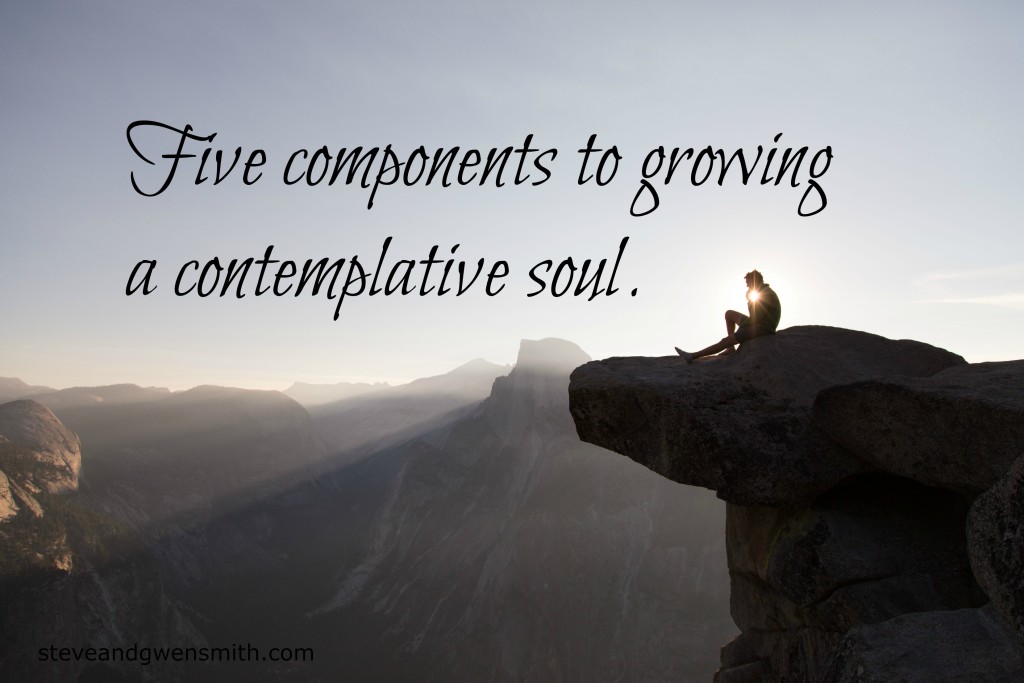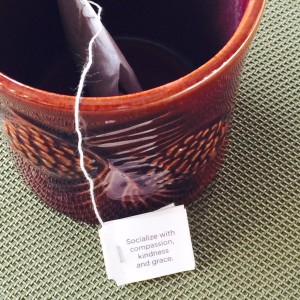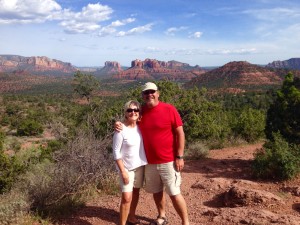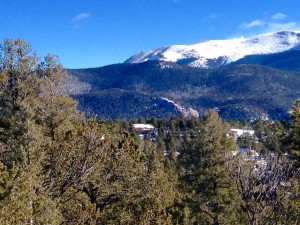As moderns, we think we know how to read most books. Yet in our fast society and driven cultures, we graze over books rarely having a moment to sit with what we are reading. We think that reading the Bible through in a year will actually help us. But it's interesting that Americans are really the only culture that promotes such a thing. There is a better way to read---a way that ushers you into an experience of encounter that is too deep for words!
Lectio Divina means literally, “Sacred” and “reading.” It is not reading fast. It not reading for information. It is not Bible study. It is the slow art of deep listening. In the ancient way of reading the Scriptures in a sacred way, we simply read a short text of the Scriptures slow. Not everything good is fast. By repeating what you read a few times we are invited into the passage we read. To listen deeply, you may read the passage several times--perhaps listening to the same passage four times. It's as if, once is clearly not enough. We read to be read by the Scriptures, not to just gain information.
Reading the Bible in this way is really a child like experience—an invitation to become like a child and hear something very important. Remember when someone might have read to you when you were a child? It elicits feelings of being connected; being with someone; being wanted in a way because someone was taking the time to do this with me—for me—to me.
It’s very similar when we learn to practice reading the Scriptures this way. When we read the story about Jesus calming the Sea (Mark 4:35-41), we read it slowly to see things; to hear things; to smell things; to feel things. We can and will miss the deeper meaning in a single reading of the passage. When we slow down and read the passage several times, we may see ourselves in the boat or in one of the “other boats” that were in the exact same storm. When the boat begins to sink, we may see ourselves frantically bailing out water or holding on for dear life. But as Jesus stands up to quiet the sea, we find ourselves wondering if He might turn to the storm within our own hearts—our work situation; our marriages; the storm of our finances and the storm of today’s fragile world. Everything is possible when we read the Scriptures with new ways and new ears to really listen—to listen very deeply to what is being read.
Cell by cell, our brains need to hear things layer upon layer, so that WHAT can actually change our lives actually WILL really change our lives. We will feel as the disciples felt on the Emmaus road when they confessed "Did not our hearts burn within us as he spoke to us?" Reading and by read by the Word nourishes a flame of meaning within us. An old Greek philosopher said that “Repetition is the mother of all things.” To repeat something is how we as humans learn. Once is simply not enough. We need to hear something really important more than once. We may not be listening the first time. We may be distracted. I may have been focused on an email I should have sent before I even sat down to read the Bible. We’re not fully present. So reading the Scriptures slowly and repeatedly, allows us to hear with our hearts not just speed read with our minds.
Quadrant by quadrant, our hearts begin to burn with clarity, insight--knowing that we have been "spoken" to. We read the Scriptures so that what is being read by move through our heart, quadrant by quadrant--until the Word can penetrate into the deepest, most hidden quadrant—that quadrant Jesus was concerned about most in a human being’s heart. Jesus, himself, spoke about what’s way down deep—in the fourth quadrant of our hearts—where no one knows what’s really there—not even ourselves. He explained it clearly, “It’s what comes out of a person that pollutes: obscenities, lusts, thefts, murders, adulteries, greed, depravity, deceptive dealings, carousing, mean looks, slander, arrogance, foolishness—all these are vomit from the heart. There is the source of your pollution.” If the source of our pollution is down deep, then doesn’t it just make sense to participate in reading the Scriptures in a way—to that THEY can sink down deep to cure the source of the pollution? So, doesn’t it really make sense, to let the pure, clean and transforming Word sink way down to the place where transformation really needs to happen? The slowing down of how we read the Scriptures is important so that we can actually be read by the Scriptures. Just to read a passage might bring inspiration. But transformation happens when the Word sinks deeply and ushers us into real change—changing our desires as well as our habits. Why would we want to skim the passage then--only noting what we've already seen before? This way, even a single word might become our daily bread--the bread that will really sustain us and nourish us!
Henri Nouwen has reminded us, “The Bible is a sacred book and must be read in a sacred way.” Our modern way of reading almost anything began in our grade school experience where we were all taught to read for comprehension—to read so that we might pass the State’s standardized test. But reading the Scriptures in an ancient way not only requires us to re-learn how we actually read the holy book but also requires us to surrender old ways; old styles; and old, long held, gripping ways we go about reading the Scriptures and also being read by them.
There are four things we need to surrender when we begin to read the Bible in an sacred way:
We must surrender our desire for power and control.
In a retreat I attended, people made comments after the various movements of the Lectio way of reading together. Often, the leader might ask, “After I read it the first time, share a word or phrase that seemed to stand out; seem to somehow get your attention.” But as I listened closely to the responses of those sharing, most of the comments seemed more about power and control than about being deeply spoken to in the Lectio. When we read the Scriptures in a way to be read by the Scriptures, it is the power of the Word, not the power of our sharing that matters. The Power of the Word is yielding to the fact that there actually is a Word for us to first listen to before we react to the word.
We are so quick to speak—and our quickness in speaking may be rooted in our subtle ways of sharing what we already know—some podcast that we recently listened to; some sermon we just heard; some book we just read---that in our sharing our “insights”—we may be sharing facts and statements that seem to underscore OUR importance—not the importance of the Word. When we learn to respond--not to react to that we have just heard, we are allowing the deep work of listening to happen in us. It's true in a conversation and it's especially true in a conversation with God through reading the Bible. What someone ELSE said about the passage is simply NOT the agenda here. What God said to you is the crux of the matter. We can forget this.
It seems odd that power and control can disrupt what people really hear—but it does. We should learn to be careful as we enter reading the Bible in a way so that the power belongs to God and the control is of the Spirit—not of a person.
We can surrender to our desire for affection, esteem and approval.
It truly is amazing and concerning how the human ego can show up in all it’s self-perceived glory—even in something so holy as the reading of the Scriptures. What we share may actually be veiled and smug statements that are more about our self. We think if we say something funny, people might begin to like us or accept us. We surmise that if the insight we share is really deep, people might be impressed with us and seek us out. Someone might notice us. And isn’t it really the entire point of a Lectio to let the Scriptures be noticed and not an extrovert? Our words can so easily get in the way of someone who is truly in the poster of listening deeply so that they might be spoken to. If we surrender our desire to speak up and get noticed, then we find ourselves in the posture of truly receiving; truly being ministered to; truly being served the very Bread of Life.
We learn to surrender our own desire to change any situation, person ---even our own self.
How often have we all had the experience of sitting in a sermon; experiencing a class or participating even in a Lectio with the hope that the person next to us—might REALLY get it—this time. After all, we’ve already “gotten it” we assume. By our own desires and also efforts, we perhaps think we might manipulate the Spirit to “really speak,” really convict or really get to someone. We can lay this down and as we lay our desires to have someone else change, we posture our own hearts that we can, ourselves be spoken to. Why? Because our motive is not about anyone else—other than ourselves. We are the beggars who need the daily bread.
We can surrender our modern ways of approaching the Scriptures and embrace the ancient ways.
When the Bible tells us that “Faith comes by hearing and hearing by the Word of God” we need to adjust then to the fact that there really is a power that comes from the simple act of listening to someone read the Scriptures. In our age of light shows and smoke machines--even in worship services, I know it seems odd to say this, but it's simply true. Yet, we are perhaps in our modern times, transmitting the dis-ease of the soul called: “Attention Deficit Dis-order” and we cannot be still, sit still or really listen unless it is in PowerPoint, loud and perhaps in a rap like cadence. The Lectio experience invites us to simplicity---to turn off iphones and to not use PowerPoint and to simply do the simple thing of the forgotten art of listening. We can learn to grow the ears of the African elephant to literally wrap our ears around a text because we know way down deep that THIS word is what will really fill us; THIS Word is what will really speak to us; THIS WORD is what is really eternal and not cultural and not a way people “use to” hear from God. No, we can hear today if we learn how to surrender to how we actually listen. Culture is shaping us in far, far more ways than we are aware. Being shaped by the Word is our opportunity here--resisting the shaping of cultural and relevant ways.
In Lectio Divina, we learn to open ourselves to the love and presence of God. People can get in the way of our opening ourselves. So we need to be careful to not be a distraction for the love and presence of God.
Lectio is a simple practice that offers rich and wonderful moments in our relationship to God. To protect this practice a few guidelines are important to ensure we experience what God offers us.
Finally, the one who is reading the Scriptures assumes a very hidden role. You become the flute which the air moves through. It’s the air that matters, not the flute. So, for the ones who lead the Lectio, we can always remember, “It’s not about me.” And when we surrender to that posture, we realize it’s not about our insights---there should be none shared by the one who leads. The leader simply is there to read---not to share their own insights. Their actual physical position, posture and influxes of the voice might also get in the way of someone actually hearing what is important for them to hear. Because we cannot know what God wants to speak to someone else—we, as the reader, seek to remain neutral as if we are simply the vessel. The Lectio is the time to take off the teaching hat; the preaching voice and the group leader’s attempts to get everyone to participate. Some may remain silent—because something too deep for words has perhaps just happened. Lectio is not the time for community building. It’s not the time for teaching. Lectio is the act of surrender our many words for the One, true Word—the Word that changes everything.
Recommend Resources to help you study this more:
Too Deep for Words by Thelma Hall. Perhaps the single best reference on Lectio Divina I am aware of now. As I checked just now, there are used copies for a penny! Go to Amazon to Get it!
Opening To God by David Benner. I love this book's wonderful survey of how to enter into the movements of Lectio Divina. Get it on Amazon Now!
The Lectio Divina Guide - A simple guide a created to get you started.
 In a single verse, we are privy to what Mary actually did—after she was told that she was going to have a baby and that her baby would have a sacred role in God’s plan for humanity.We see in Mary’s response an action that is beautiful, humble and meaningful. She doesn’t rush around telling her closest friends what has happened. She doesn’t make a plan. She doesn’t fret, worry or let her nerves get the best of her.Mary’s heart reveals two needed postures in today’s frenzied world with 24/7 news in the ever-ready, always on world we live in today. Mary “treasures” the information she has been given. Then, Mary “ponders” it.To treasure and ponder both the seen and unseen things of our lives grounds us. By treasuring and pondering truth, we develop and grow a contemplative soul—a soul that ponders the invisible; a soul that responds rather than reacts and a soul that is anchored in a bigger picture of life than just the urgent, pressing and hurry.[tweetthis]There are five components needed to grow a contemplative soul.[/tweetthis] These five components have been the foundation for Gwen and me in our life in our sabbatical and post-sabbatical.
In a single verse, we are privy to what Mary actually did—after she was told that she was going to have a baby and that her baby would have a sacred role in God’s plan for humanity.We see in Mary’s response an action that is beautiful, humble and meaningful. She doesn’t rush around telling her closest friends what has happened. She doesn’t make a plan. She doesn’t fret, worry or let her nerves get the best of her.Mary’s heart reveals two needed postures in today’s frenzied world with 24/7 news in the ever-ready, always on world we live in today. Mary “treasures” the information she has been given. Then, Mary “ponders” it.To treasure and ponder both the seen and unseen things of our lives grounds us. By treasuring and pondering truth, we develop and grow a contemplative soul—a soul that ponders the invisible; a soul that responds rather than reacts and a soul that is anchored in a bigger picture of life than just the urgent, pressing and hurry.[tweetthis]There are five components needed to grow a contemplative soul.[/tweetthis] These five components have been the foundation for Gwen and me in our life in our sabbatical and post-sabbatical. 











